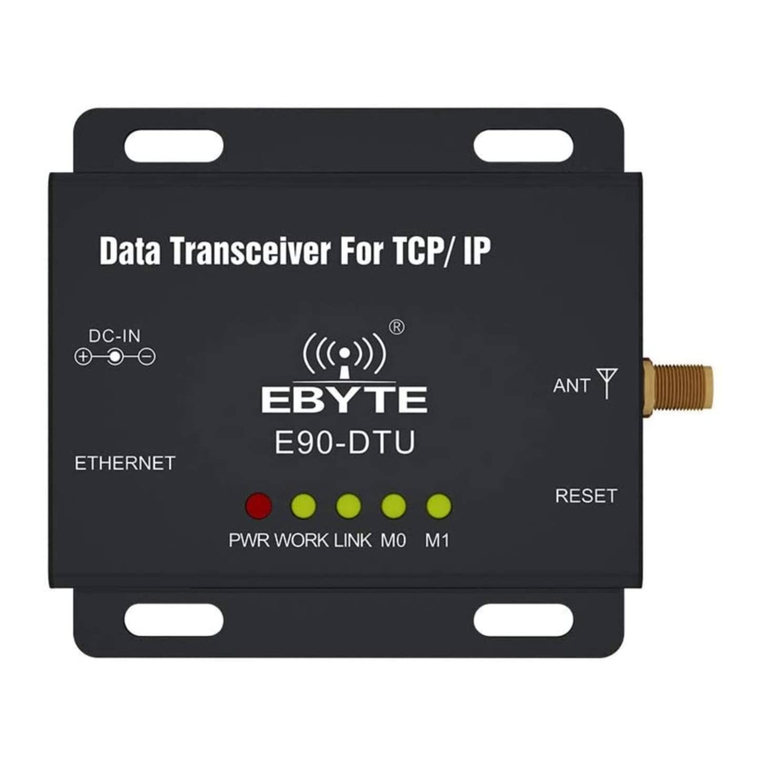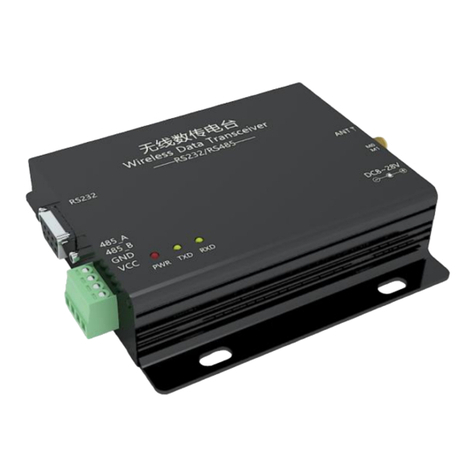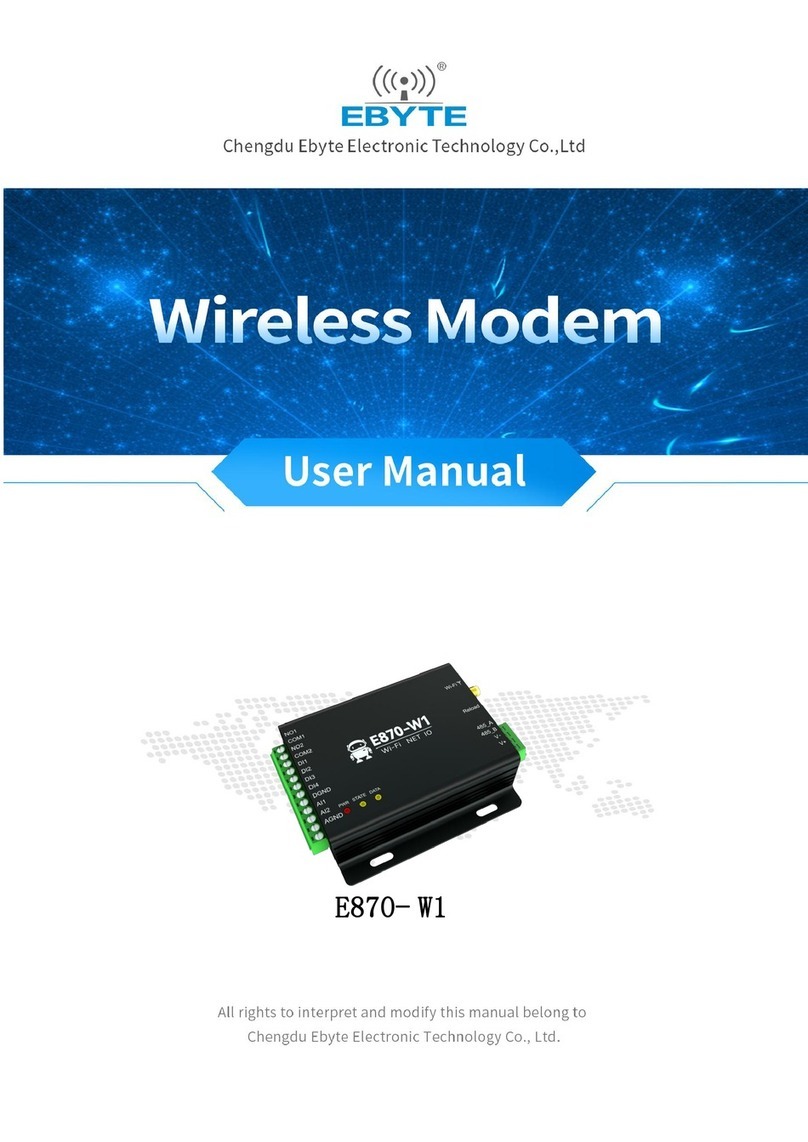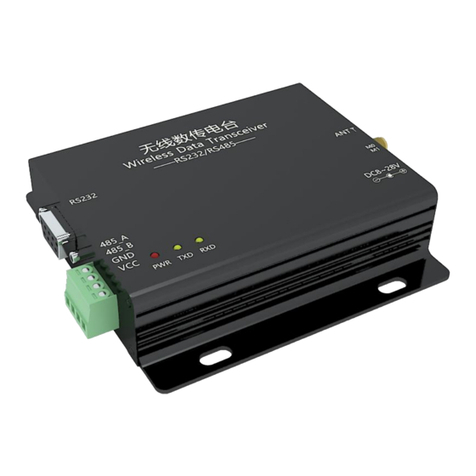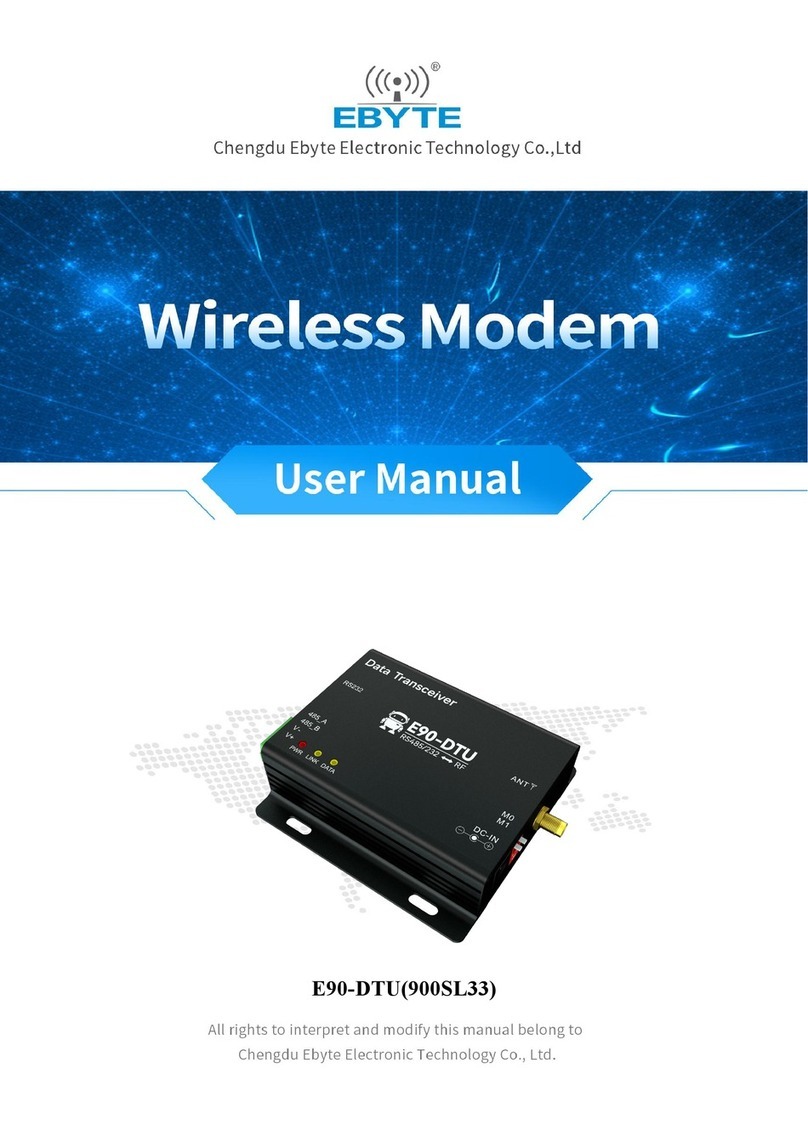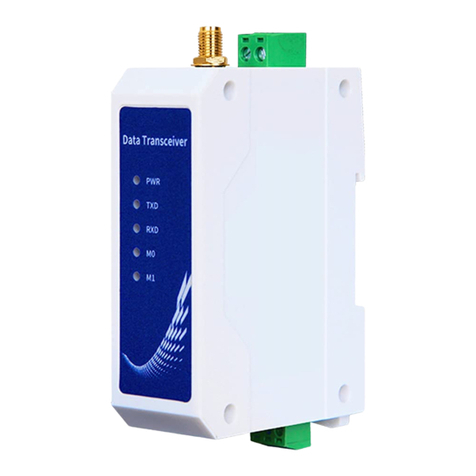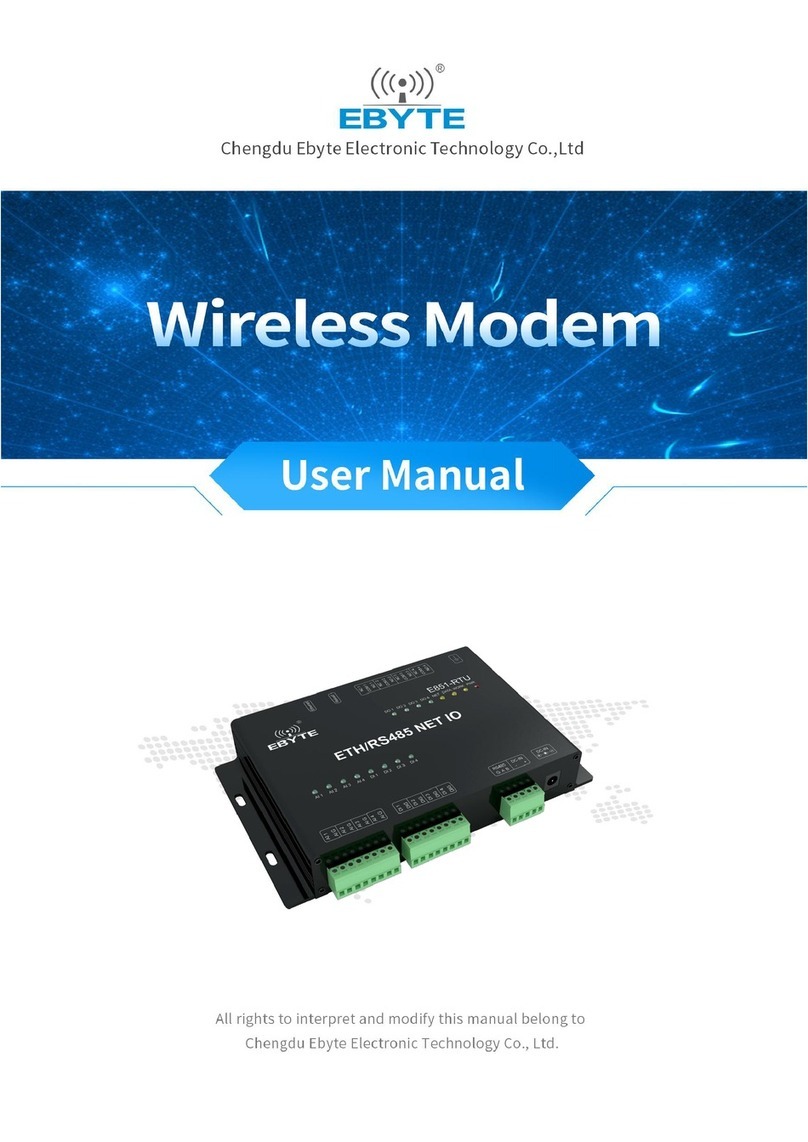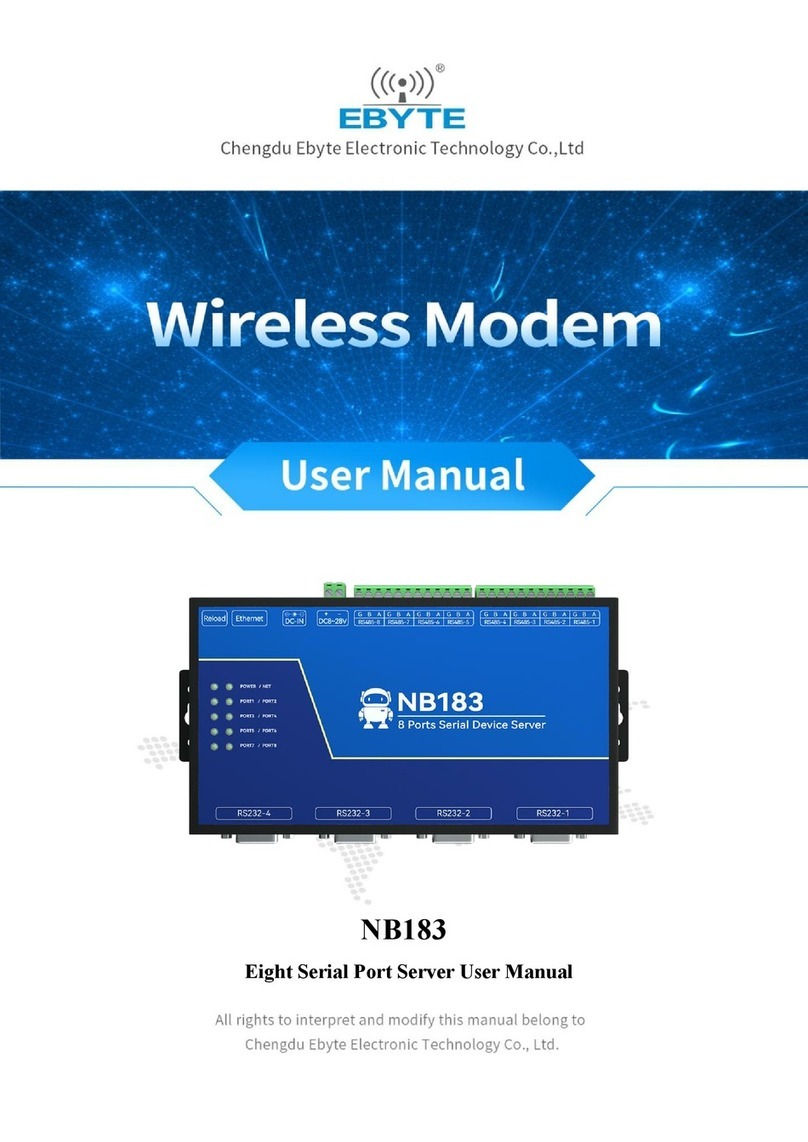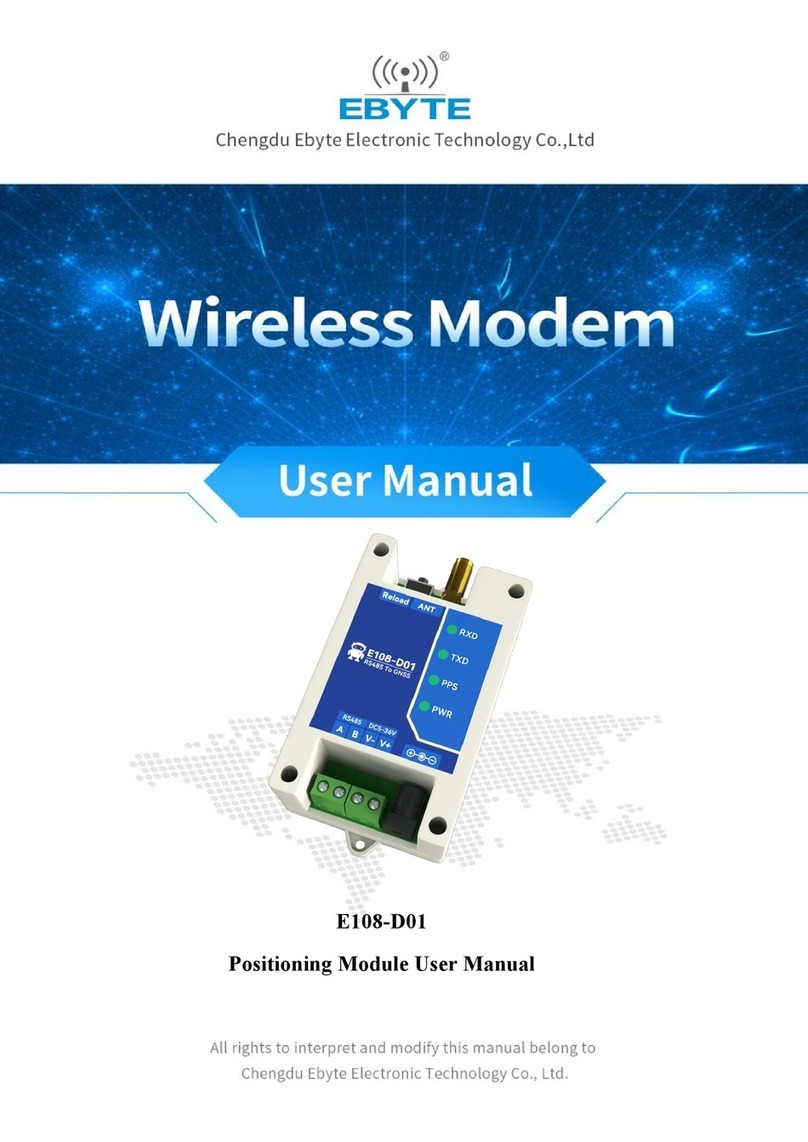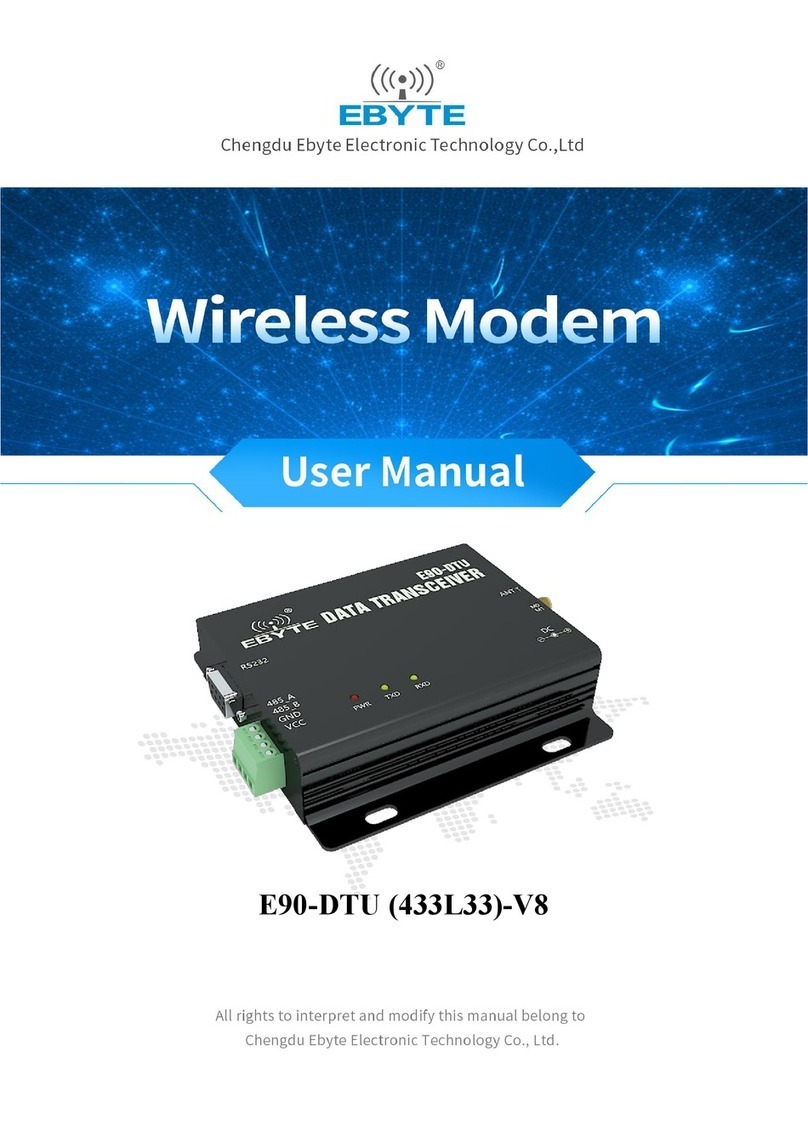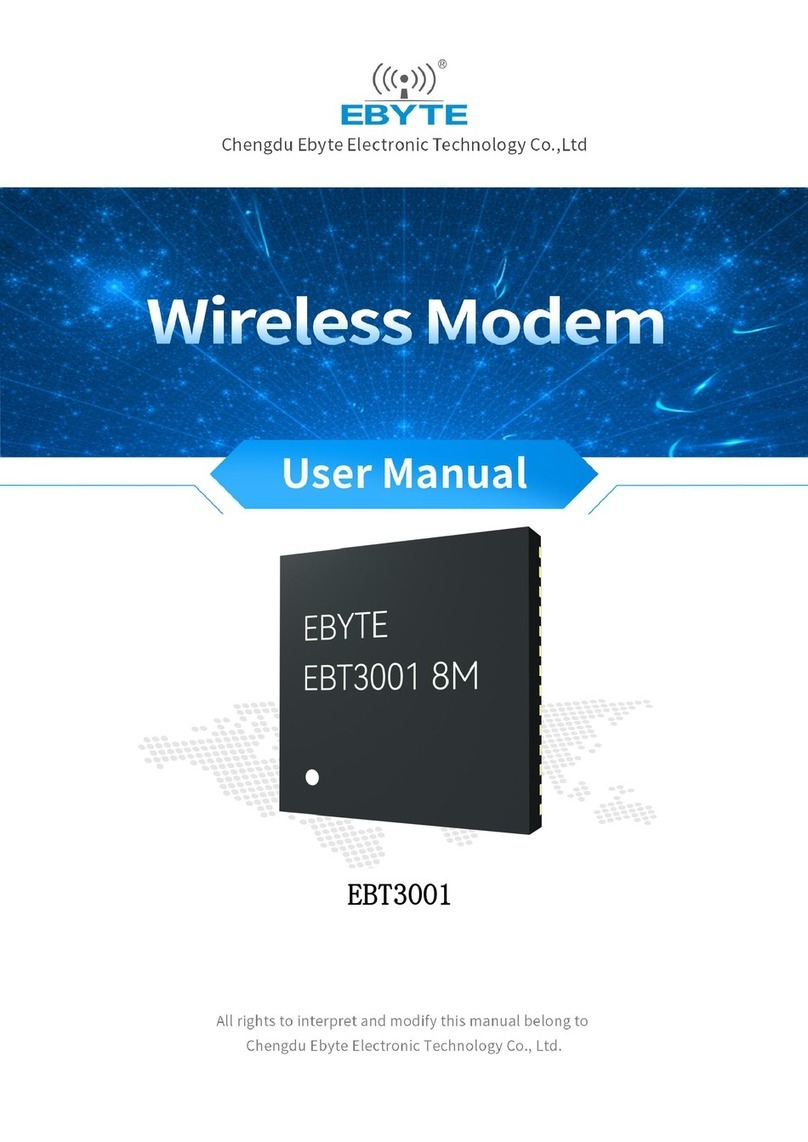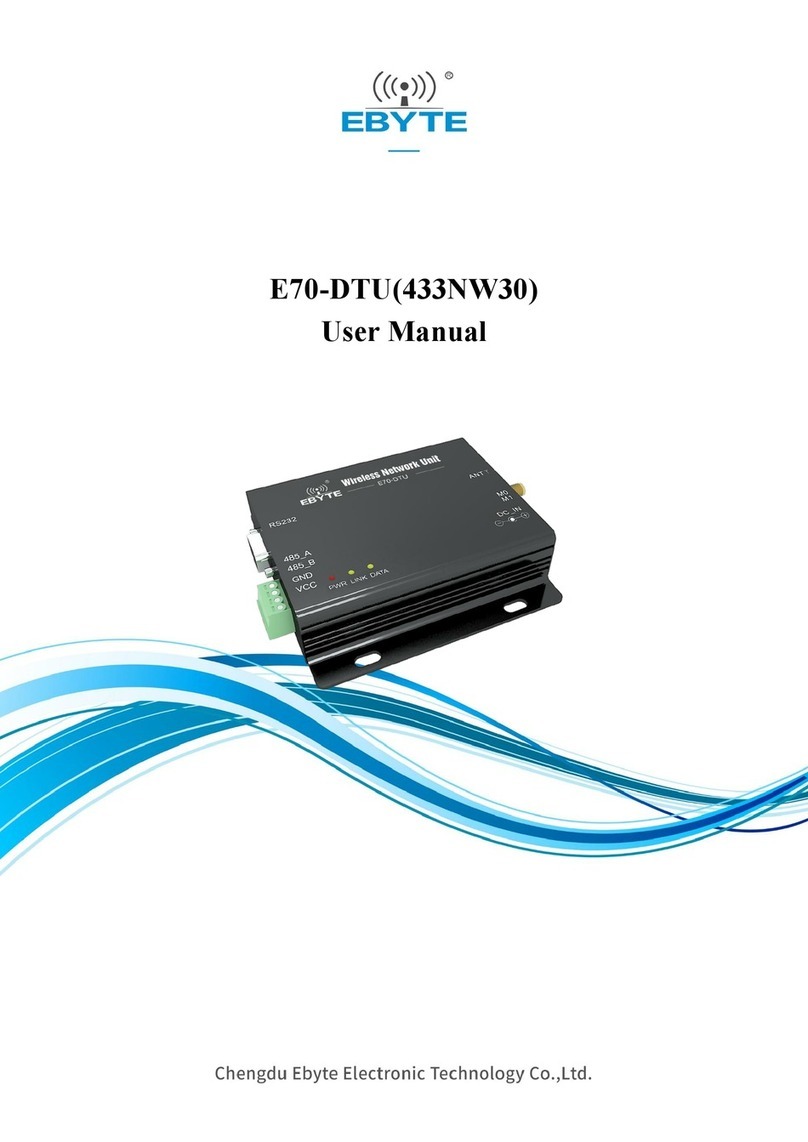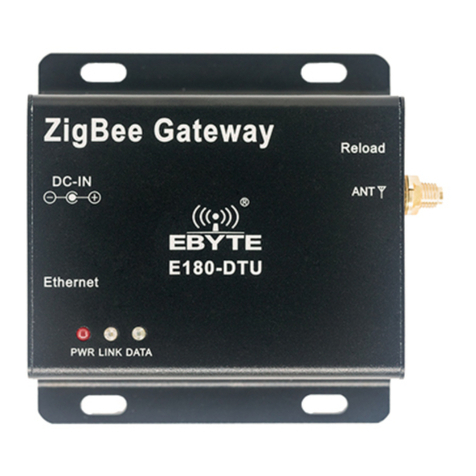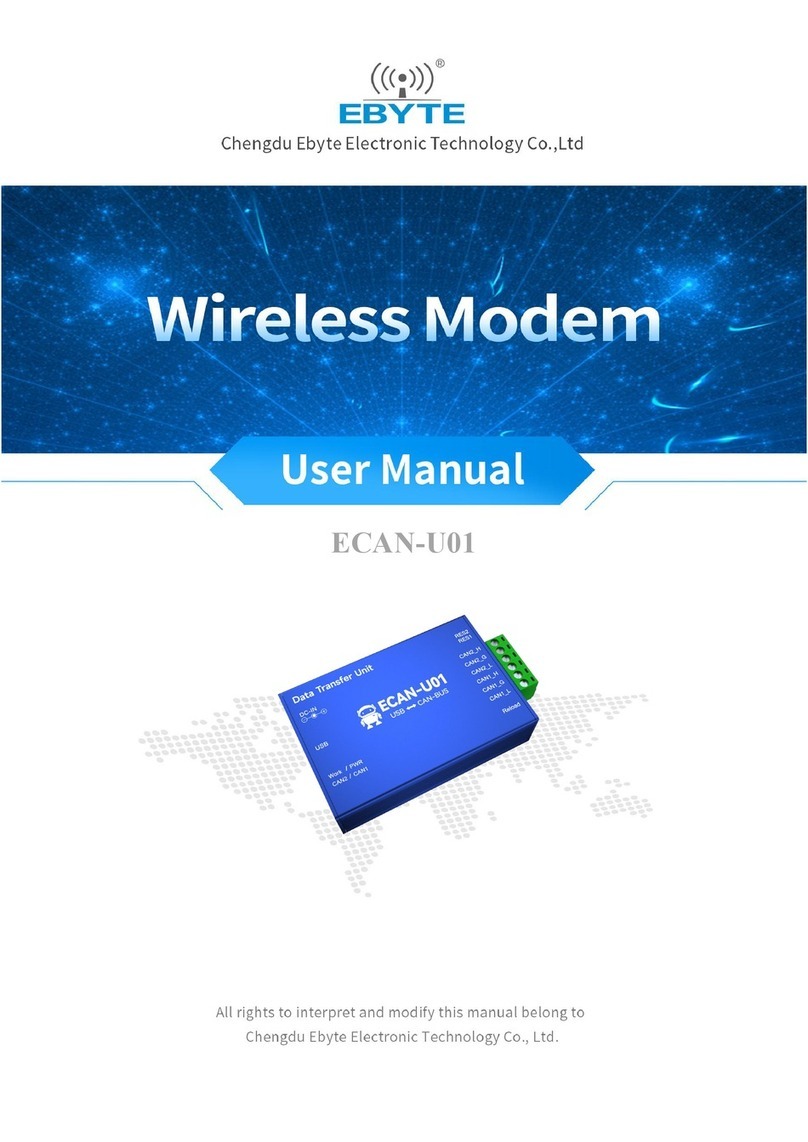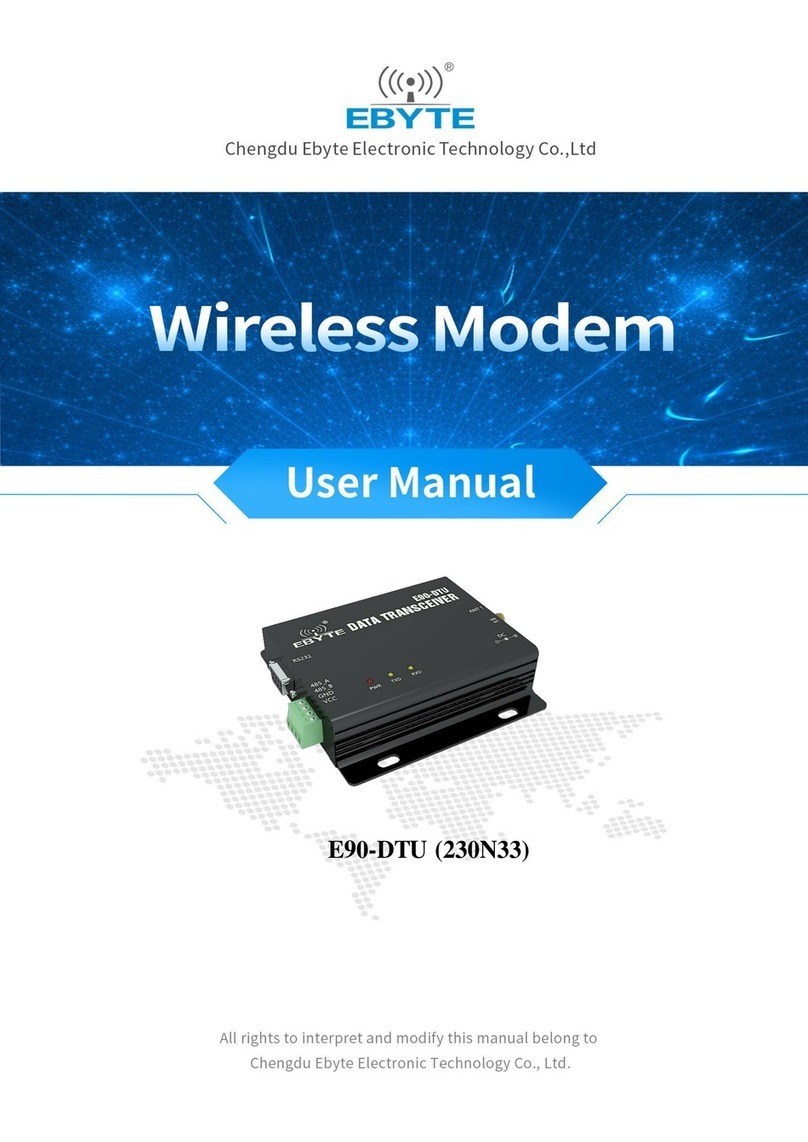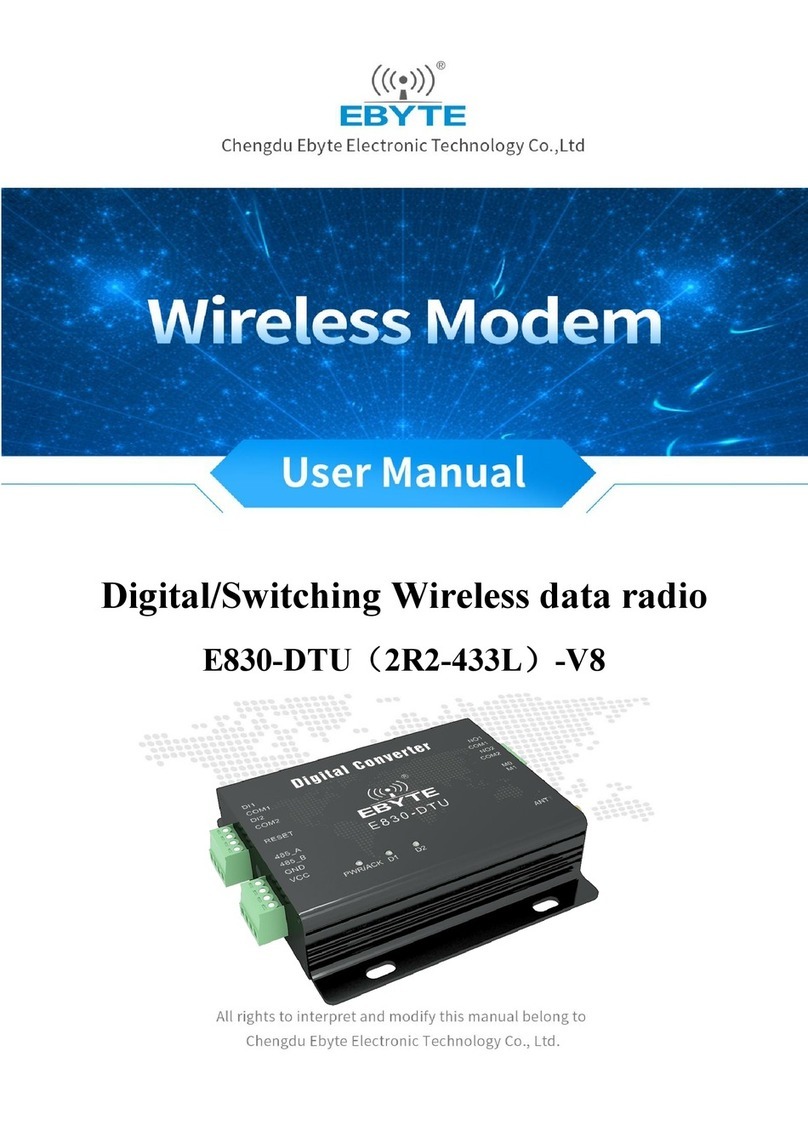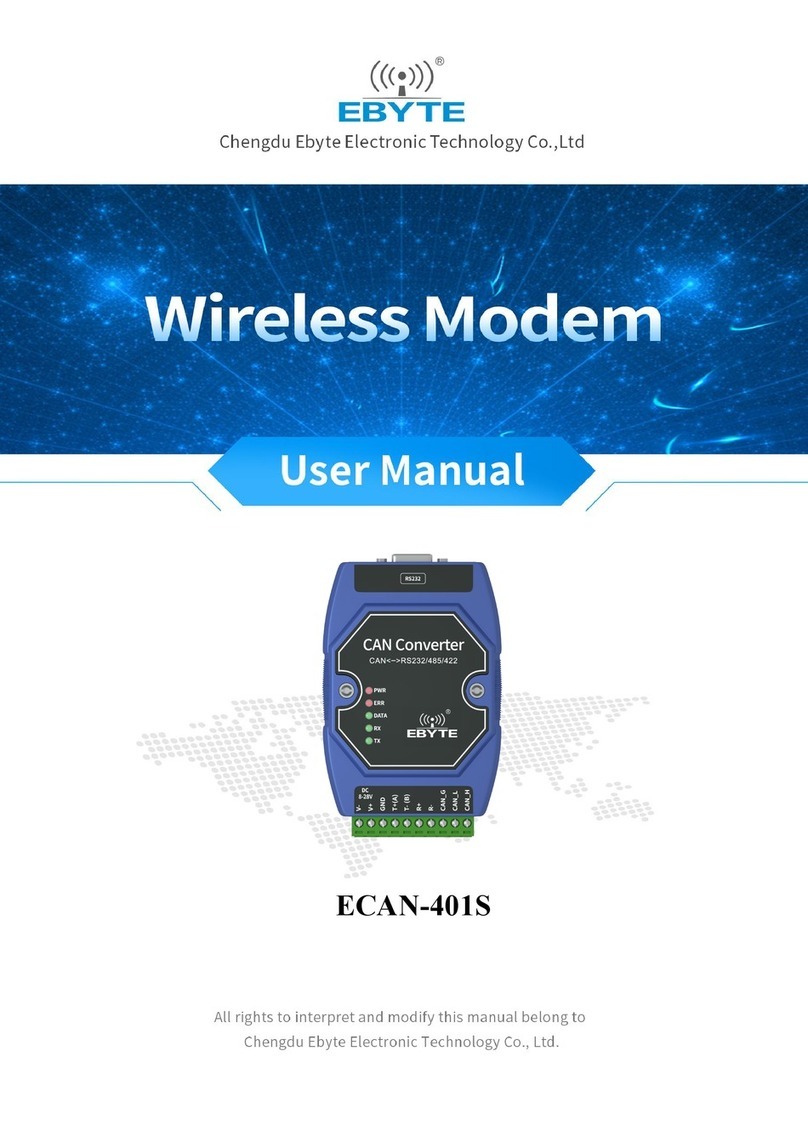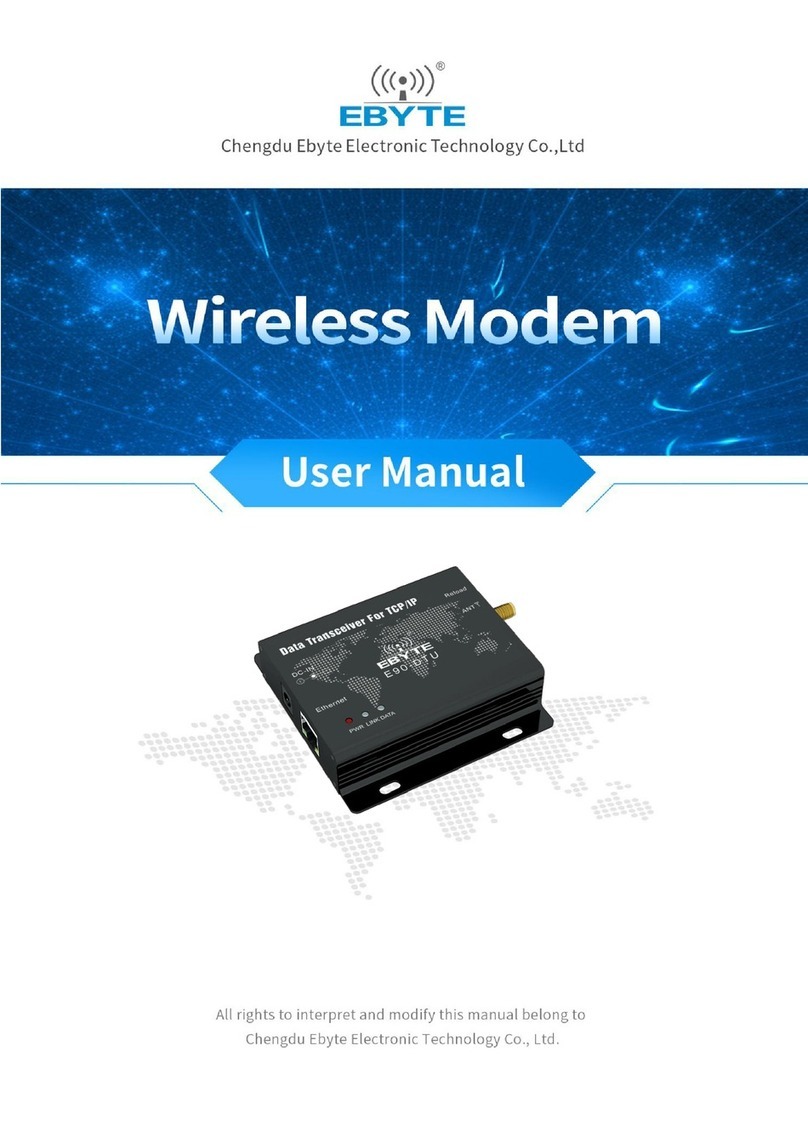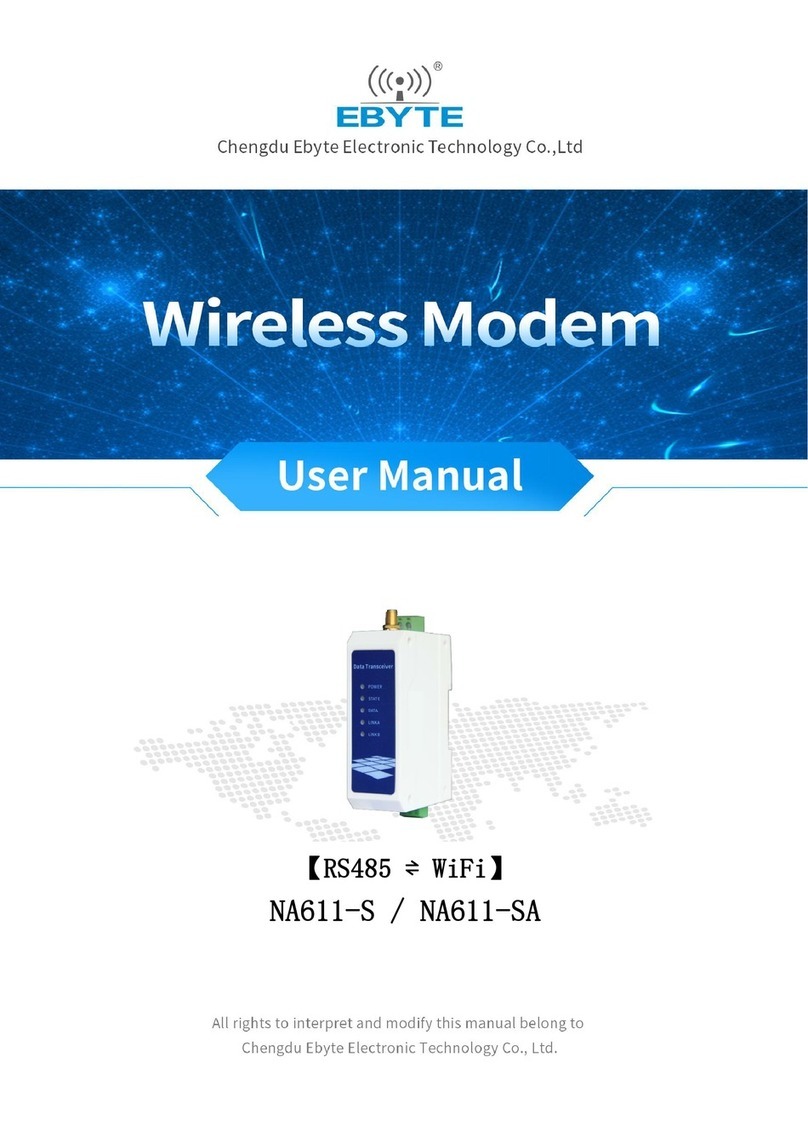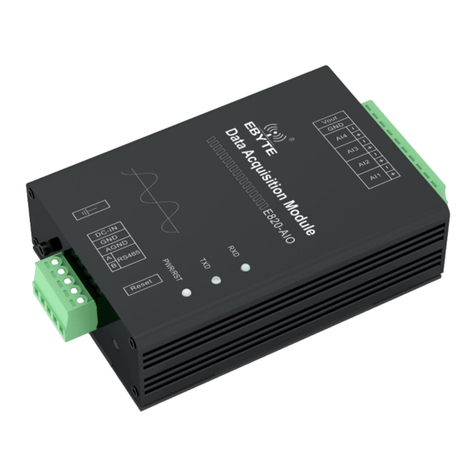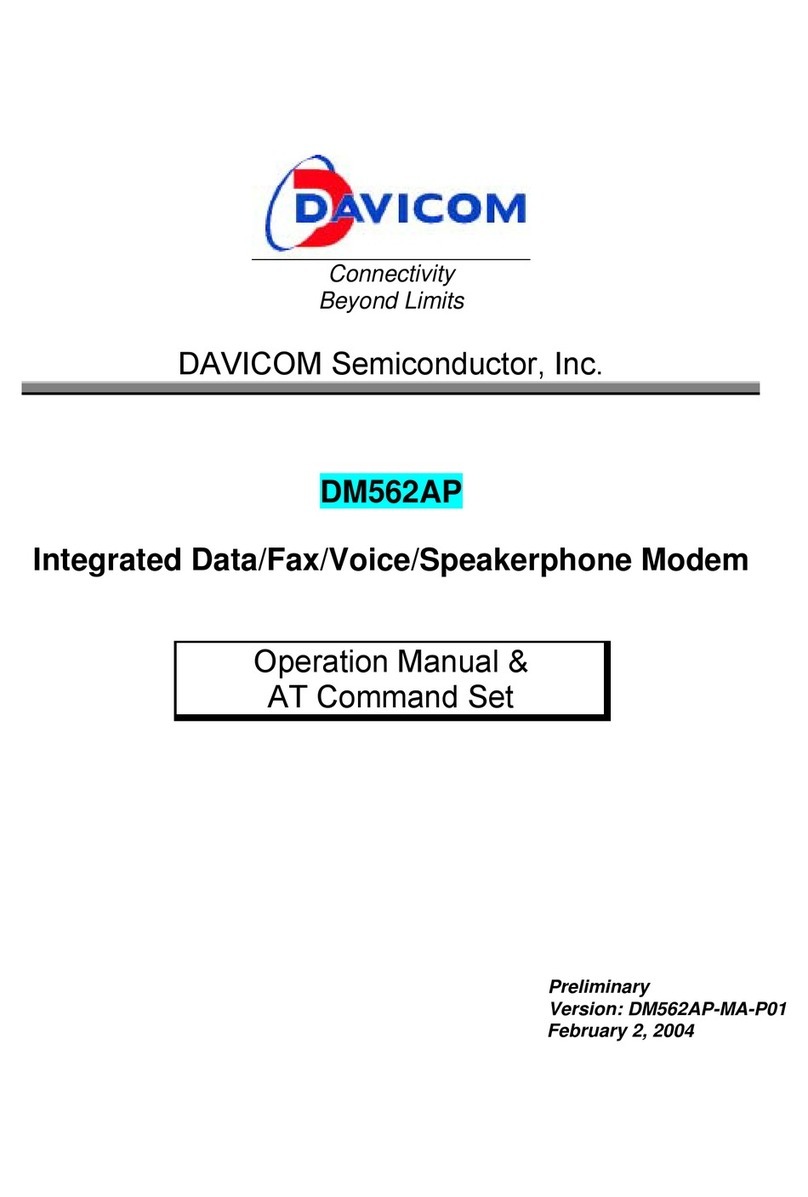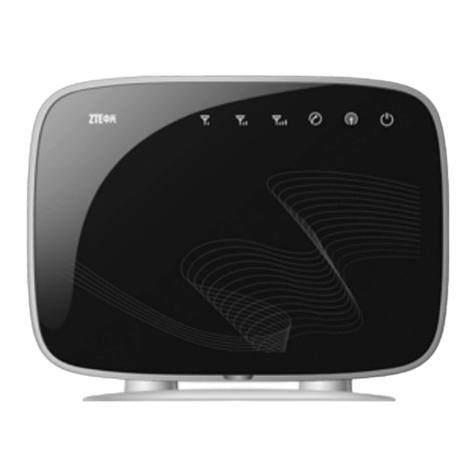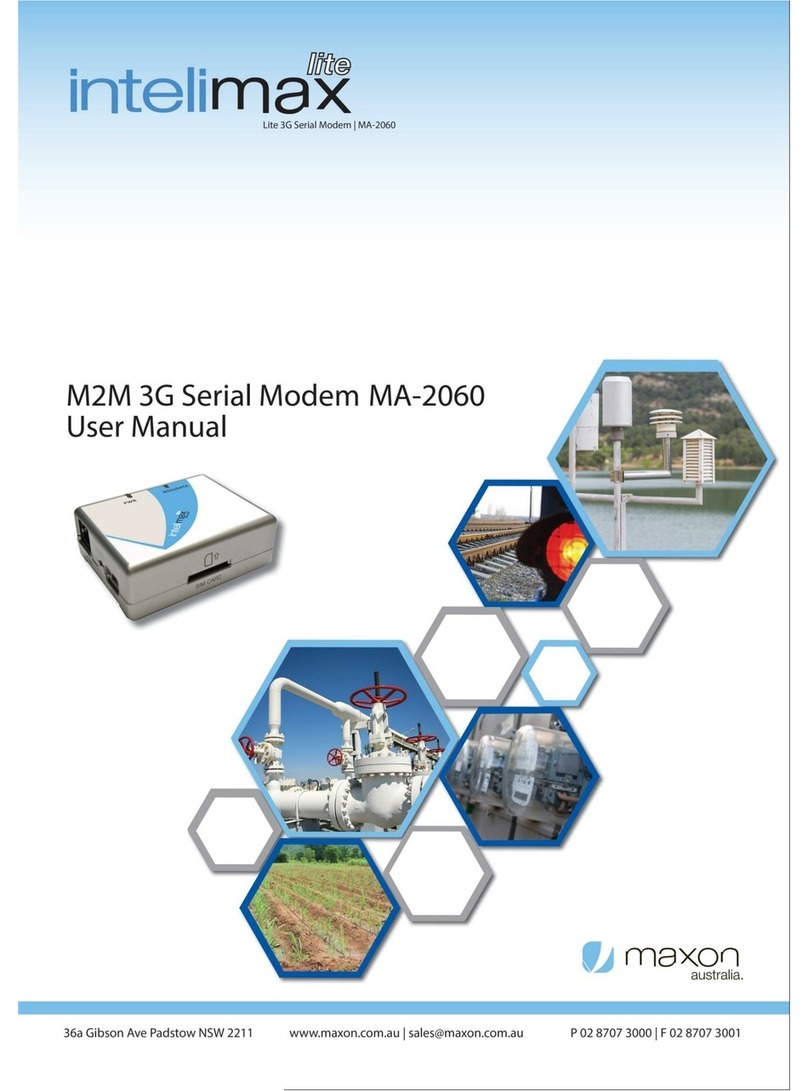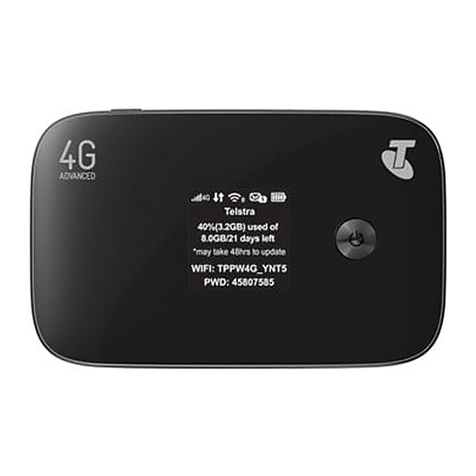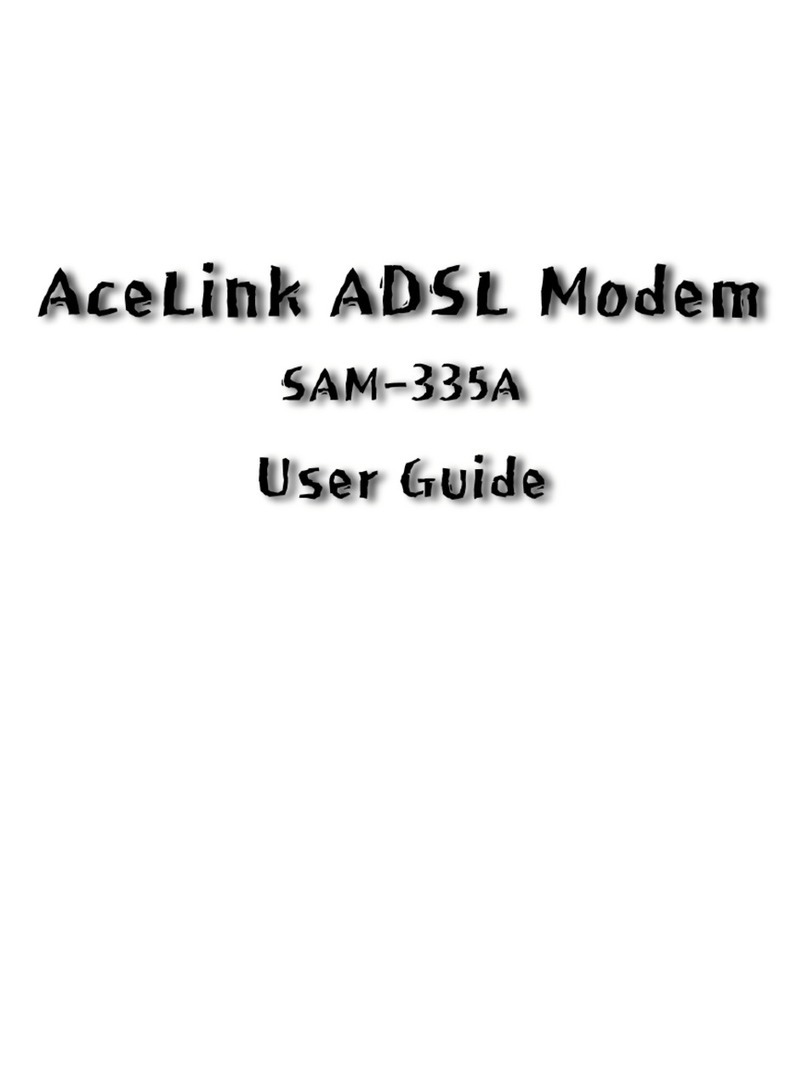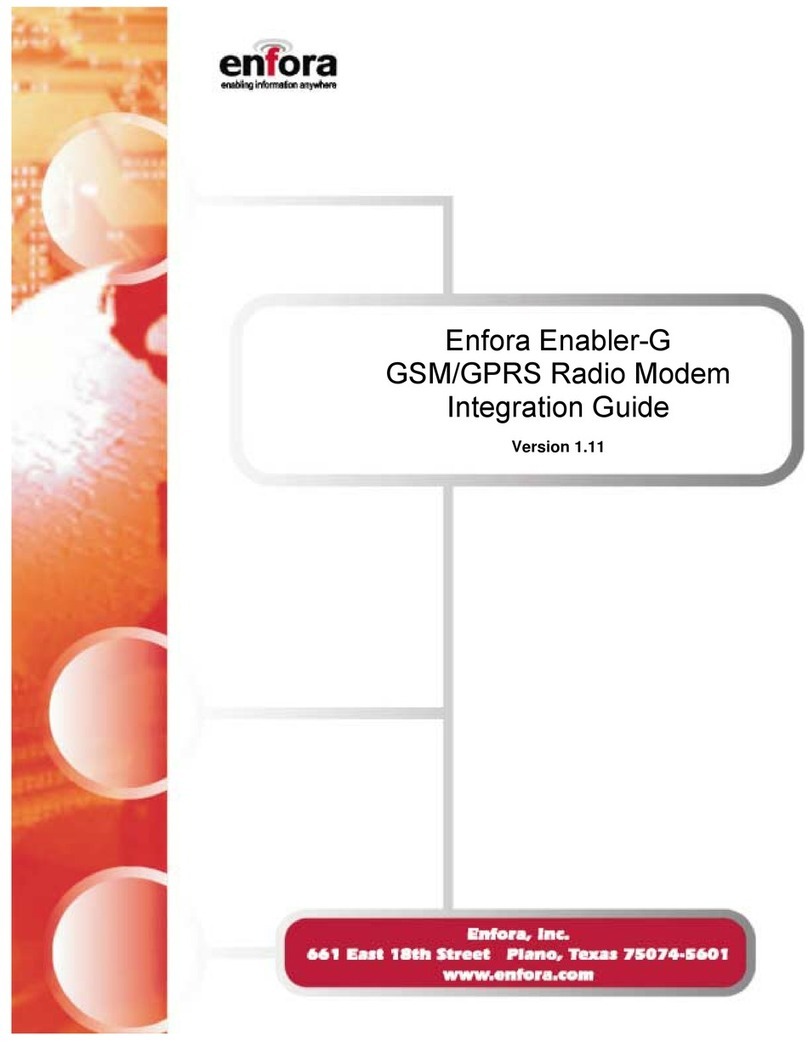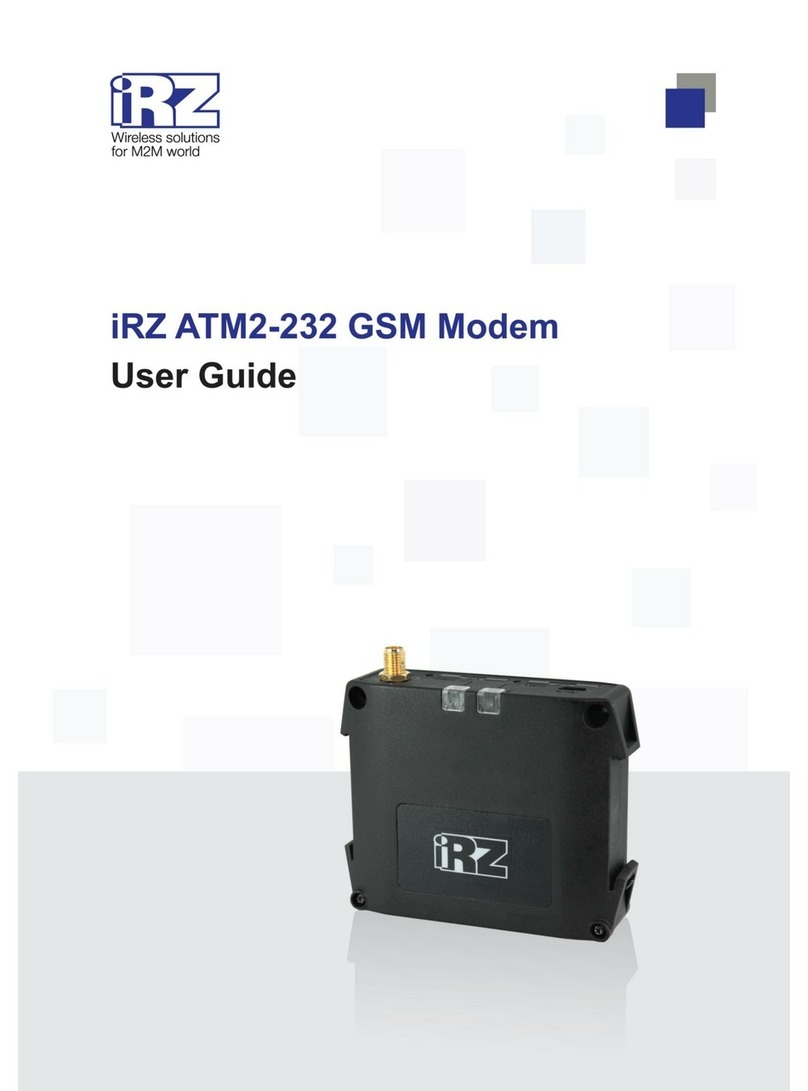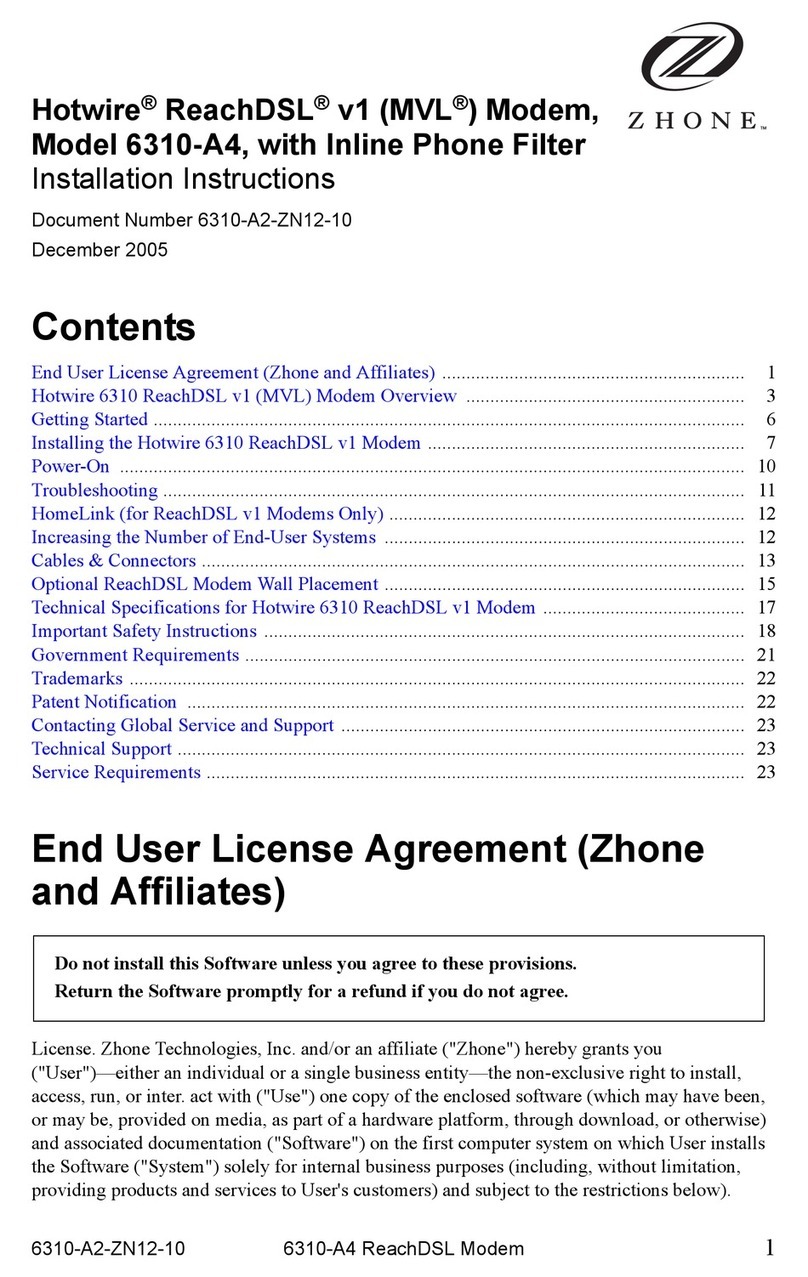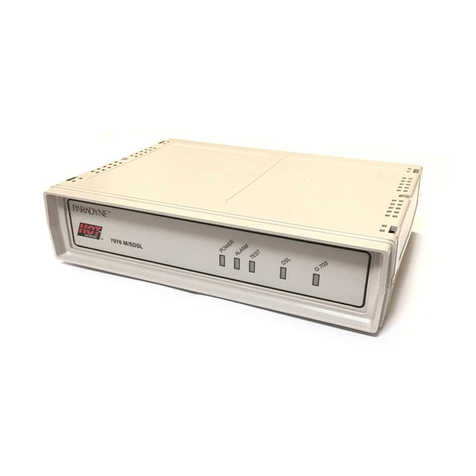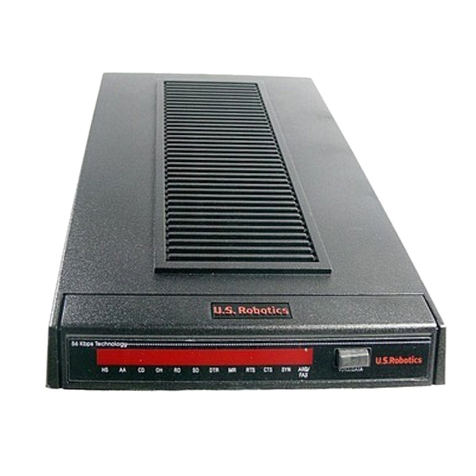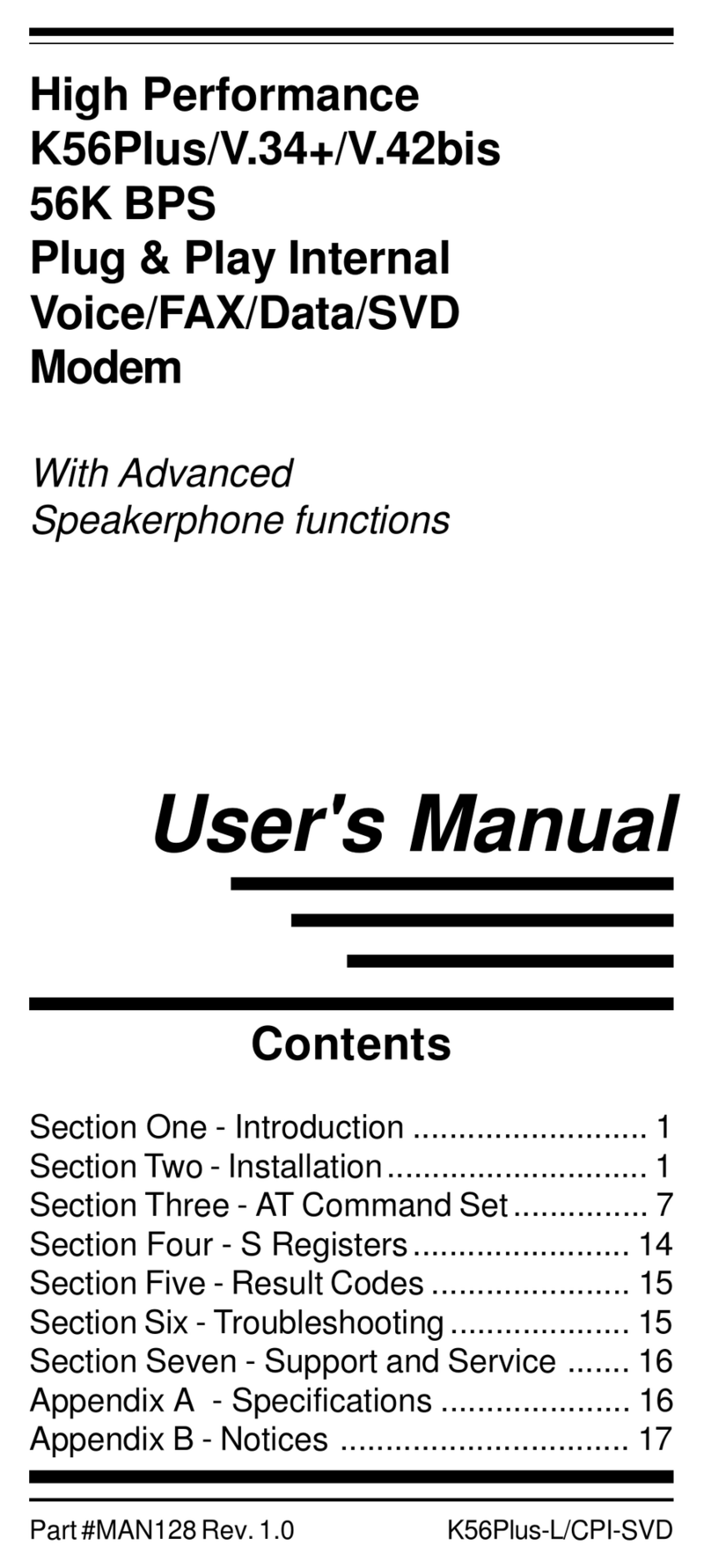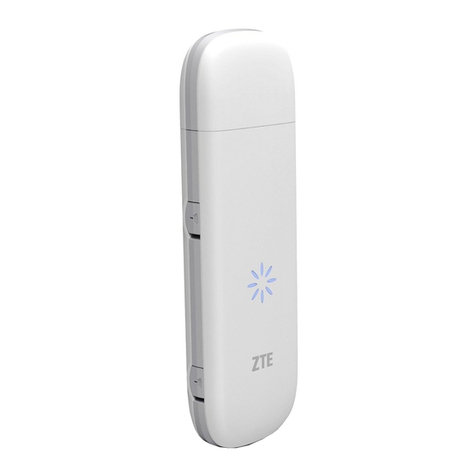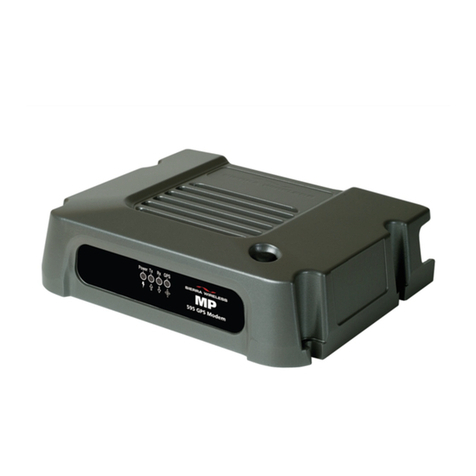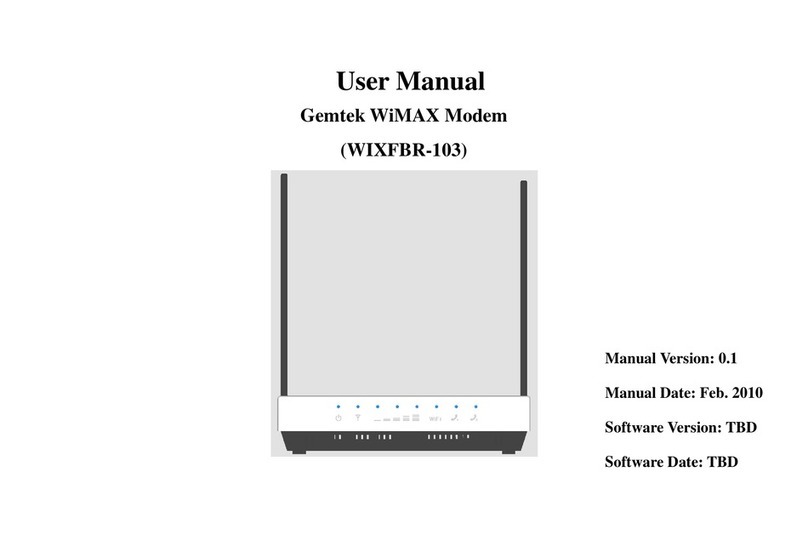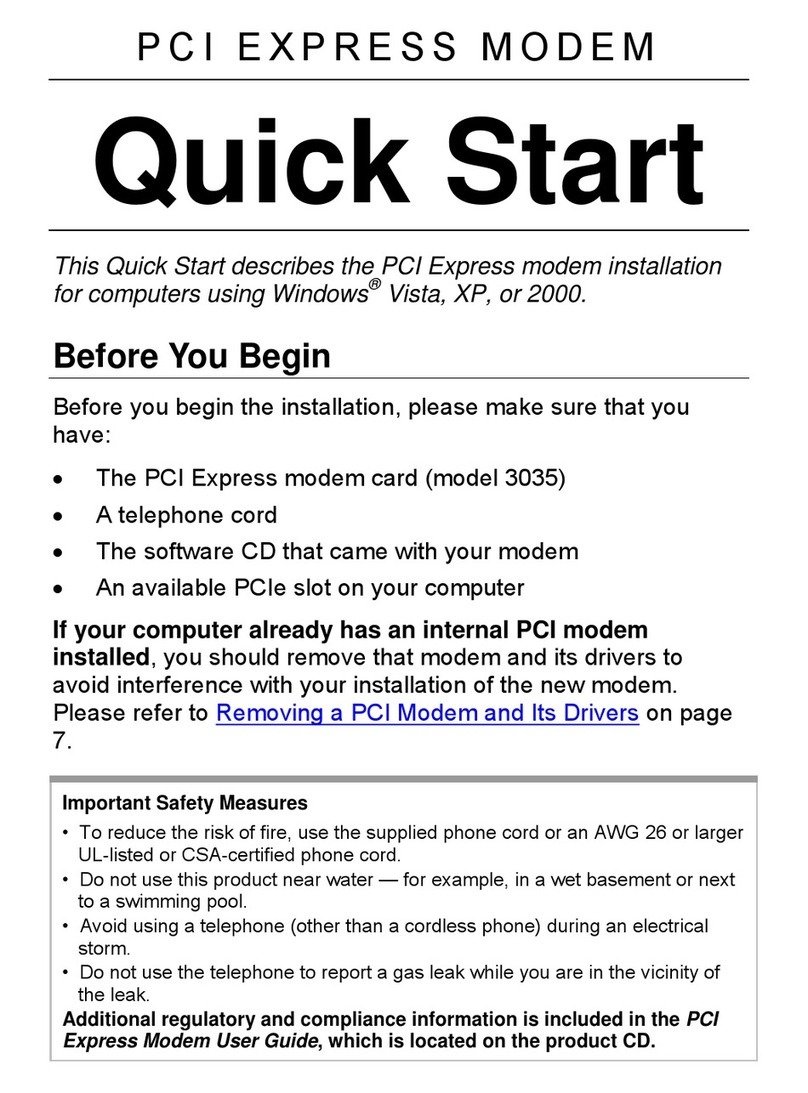
Chengdu Ebyte Electronic Technology Co.,Ltd. E34-DTU (2G4D20) user manual
Copyright ©2012–2019,Chengdu Ebyte Electronic Technology Co,;Ltd 2
1.Introduction
1.1. Brief Introduction
E34-DTU(2G4D20) is a wireless data transceiver based on 100mW, working frequency:2.4~2.518GHz, The use of
serial port for data sending and receiving reduces the threshold of wireless application. Its power density is concentrated,
transmission distance is long, high speed, full duplex, two-way simultaneous communication and file transmission are
supported, Voltage supply ranges from 8V to 28V.
E34-DTU (2G4D20) is a typically high speed transmission, under a variety of baud rate, can achieve full-duplex
features (bidirectional transceiver) at the same time, unlimited package long, support continuous transmission, support
file transfer module has the function of data encryption and compression module of data transferred in the air,
randomness, through strict encryption algorithm, making data intercepted lose their meaning and function of data
compression has probability and reduce transmission time, reduce the probability of interference, improve the reliability
and efficiency
Wireless digital radio as a medium of communication, as well as fiber optic microwave open wire, there is a certain
scope of application: it provides some special conditions, private network monitoring signals in real-time and reliable
data transmission, with low cost easy installation and maintenance diffraction ability strong network structure
characteristics of flexible range far, for scattered points and more complex geographical environment and so on occasion,
but with PLC, RTU, rain gauge data terminal connected level gauge, etc.
1.2. Features
★All core components are originally imported; our transceiver modems have much advanced functions with smaller size
and lower cost.
★The top TX power is 100mW, all technical parameters meet European industrial standards.
★Temperature compensators are adopted to make the frequency stability better than ±1.5PPM.
★Operation temperature range: -40℃ ~+85℃, applicable for various harsh environment, it is real industrial grade
products.
★Aluminum alloy case, compact size, great heat dispersion; good shielding, prime electromagnetic compatibility and
strong anti-interference.
★Power reverse & overload protection and antenna surge protection functions significantly improve the reliability.
★Parameters can be configured by programming, such as TX power, frequency point, air data rate, address and so on.
★Ultra-low power consumption, standby current is only 50mA (even lower under power-saving and sleep modes), TX
current ≤0.2A .
★Embedded watch-dog and precise time layout, modem will restart automatically upon abnormal situation and work
with previous parameters.
★The transceivers adopt original nRF24L01P+ chip, customers highly comment the products because of the super
reliability.
